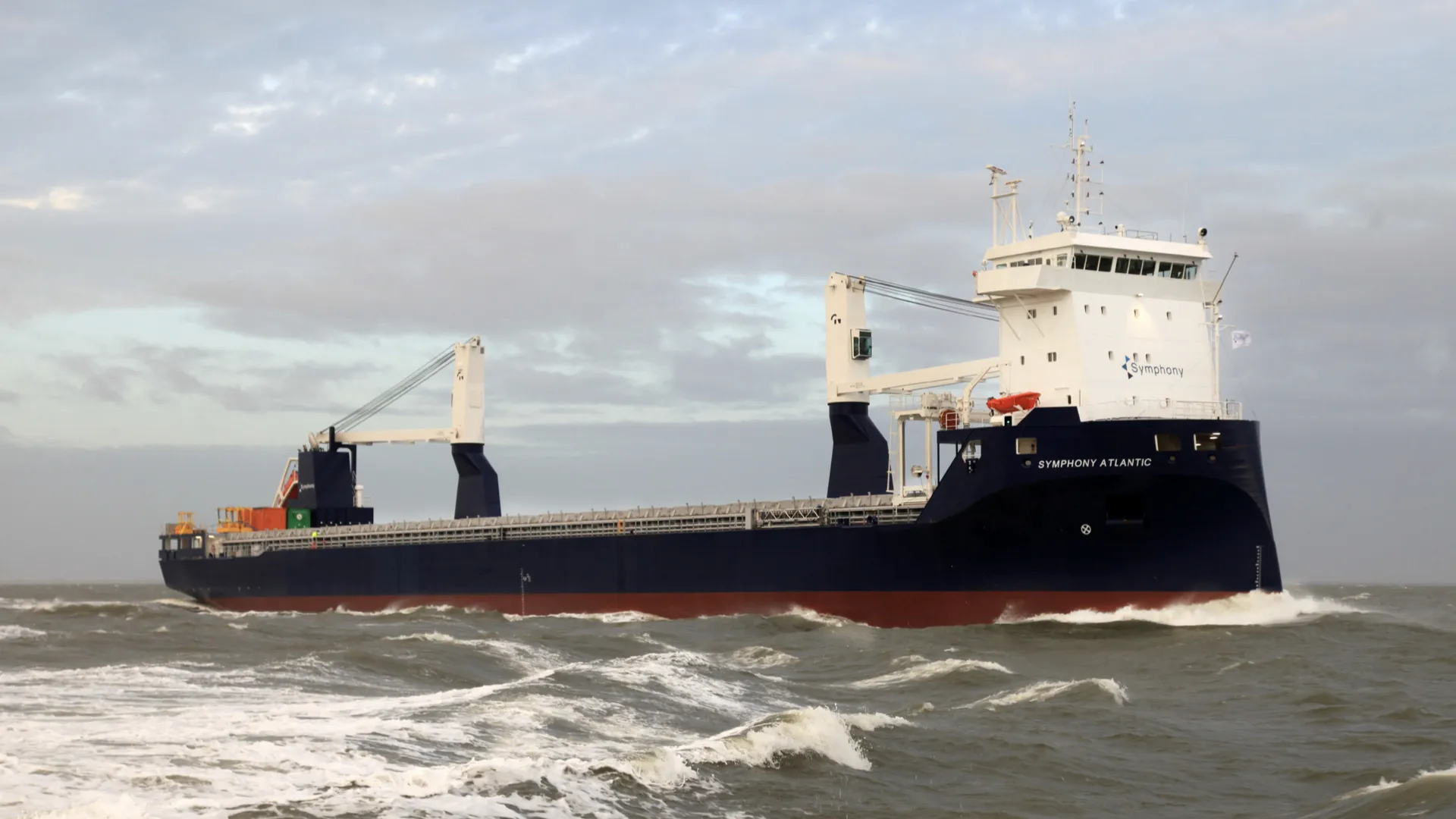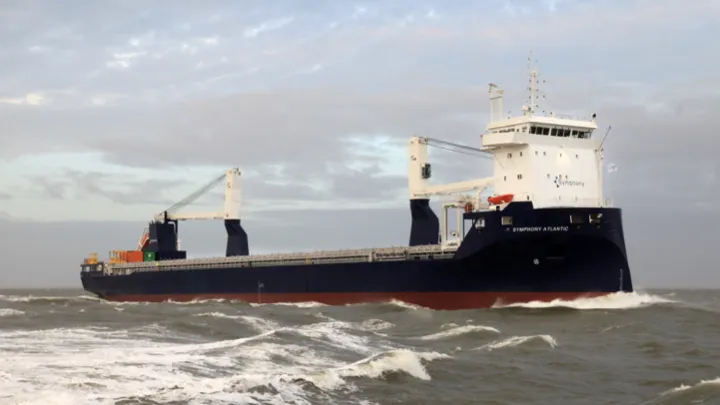Symphony Atlantic Coastal Vessel Converts Waste Heat into Electricity
Author: Jeroen Berger • Publication date:
On Friday, November 18, 2023, at 11:00 AM, the Symphony Atlantic, a coastal vessel built by the North Holland-based Ferus Smit shipyard, was launched in Leer, a town in northern Germany. This innovative ship is the first in a series of two delivered to Symphony Shipping, later acquired by ForestWave, a shipping company based in Groningen, the Netherlands. Building on the success of the Ecobox and Ecobox DP series, this vessel focuses on sustainable shipping, introducing groundbreaking innovations such as converting waste heat into renewable electricity, significantly reducing its environmental footprint.
Ecobox XL: Innovation in Cargo Capacity and Sustainability
The Symphony Atlantic combines impressive cargo capacity with significant emission reductions. The Ecobox XL design is optimized for transporting extra-long cargo, such as wind turbine blades, while maintaining its versatility as a general cargo ship. Extended by over 21 meters, the vessel provides a loading length of 100 meters on the tank top and 112 meters above the moveable tween deck, offering maximum flexibility for various project cargo types.
Hydrodynamic enhancements further reduce drag in calm waters and rough seas, improving operational efficiency and lowering fuel consumption, which positively impacts the ship’s ecological footprint.
Innovative Waste Heat Recovery System
One of the Symphony Atlantic’s most revolutionary technologies is its waste heat recovery system, based on the Organic Rankine Cycle (ORC), developed by our specialized partner. This system captures waste heat from exhaust gases and jacket cooling water, converting it into electricity. Using a heat exchanger, heat is transferred to an organic refrigerant with a low boiling point, which vaporizes and drives a turbine. The turbine converts this energy into electricity, significantly lowering fuel consumption and enabling substantial CO2 reductions.
In addition to environmental benefits, this technology offers clear economic advantages. By utilizing energy that would otherwise be wasted, the ship reduces operational costs significantly. These savings include not only fuel costs but also lower maintenance expenses due to reduced strain on the propulsion system. Moreover, a reduced Energy Efficiency Design Index (EEDI) increases the ship’s market value, as energy-efficient vessels meet stricter international regulations more effectively.
The closed-cycle process ensures continuous and stable operation as long as waste heat is available, making the technology both sustainable and cost-effective over the ship’s lifespan. The waste heat recovery system aboard the Symphony Atlantic exemplifies how technological innovation can simultaneously lower environmental impact and enhance economic sustainability in the maritime sector.
Propulsion System: Efficiency and Biofuels
The Symphony Atlantic features a 3,300 kW main engine driving a controllable pitch propeller in a nozzle. Operating in fully automatic combinator mode, the propulsion system optimizes the ship’s performance. The fuel system is biofuel-ready, ensuring the vessel is future-proof while contributing to further reductions in its ecological footprint.
Technical Specifications: Versatility and Robustness
The Symphony Atlantic stands out with advanced technical specifications that combine versatility and durability:
- Cargo capacity: approximately 12,500 DWT (deadweight tonnage).
- Lifting capacity: two 85-ton cranes for heavy project cargo.
- Open top class: suitable for oversized cargo.
- Ice class 1A: designed for operations in harsh weather conditions.
- Deckhouse at bow: protects deck cargo and improves loading of oversized items from the stern.
- Ferus Smit bulbless canoe bow: reduces fuel costs and ensures excellent seakeeping in rough weather.
A Forward-Thinking Vision for Sustainable Shipping
The Symphony Atlantic embodies the maritime sector’s ongoing progress toward sustainability and energy-efficient operations. With IMO Tier III certification and a green passport (Inventory of Hazardous Materials, IHM), the ship highlights the importance of environmentally friendly solutions in coastal shipping. Innovations such as the waste heat recovery system and biofuel readiness make this vessel not only suitable for today’s demands but also prepared for future challenges.



